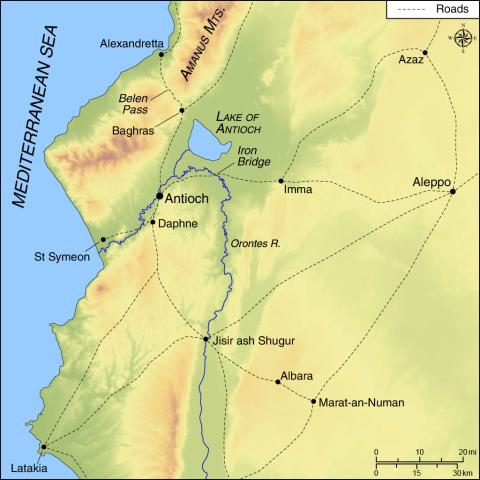Kerbogah Tries to Retake Antioch
[9.22.4] “Et quis potest hīs dictīs contrādīcere vel obstāre? Certē sī hoc bellum contrā illōs inciperis, maximum tibi erit damnum ac dēdecus, et multōs fidēlēs tuōs mīlitēs perdēs, et ūniversa spolia, quae apud tē habēs, āmittēs, et nimiō pavōre fugiendō ēverteris. Tū autem in hōc bellō nōn moriēris modo, sed tamen in hōc annō, quoniam ipse deus nōn statim iūdicat offendentem sē, exertā īrā, sed, quandō vult, pūnit eum manifēstā vindictā, ideōque timeō nē tē iūdicet poenālī trīstitiā. Nōn moriēris, inquam, modo, vērumtamen perditūrus es impraesentiārum habita.”
notes
(June 1098) Kerbogah's mother continues: if he does not heed her warning he will be defeated, and he will die later in the year, since God exacts punishment when He thinks best.
nōn moriēris modo: “you will not die now.”
sed tamen in hōc annō: “but (you will die) (sometime) this year.” In fact Kerbogah did not die until October 1101 at the earliest, and our author presumably knew than the prediction was wrong.
exertā īrā: “when his wrath is revealed.”
inpraesentarium habita: “everything you now possess”; literally, “the things having been held at the present moment.” CL does not use the perfect passive participle as though it were a present passive. Again, our author may be writing Latin that is supposed to sound foreign.
vocabulary
damnum –ī, n: loss, damage
dēdecus –oris, n.: disgrace
exerō exerere exerui exertum: to stretch out; to reveal
impraesentiārum: at the present moment (CL)

